College of College of Graduate Studies
Son of the African continent honoured by world body
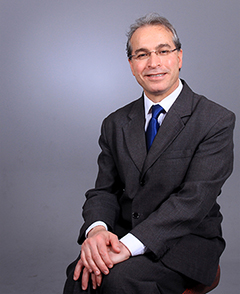
Prof Malik Maaza
- UNESCO-Unisa Africa Chair in Nanosciences and Nanotechnology
- Africa & International Relations Manager, iThemba LABS-NRF
- Fellow of the African Academy of Sciences
- Fellow of the European Academy of Sciences
- Fellow of the Royal Society of Chemistry, London
- Fellow of the New York Academy of Sciences
- Fellow of the Islamic Academy of Sciences
- Fellow of the USA-Africa Edward Bouchet Abdusalam Foundation
Unisa congratulates Prof Malik Maaza, who has been announced as the 2018 José Vasconcelos World Award of Education winner. He will be honoured on 8 November 2018 at the 35th Annual World Cultural Council (WCC) Award Ceremony, hosted by the City University of Hong Kong.
Maaza said that the award was not a personal achievement, but rather a culmination of sound institutional and team spirit contributions from various national and continental actors. "I am deeply thrilled by the fact that such an august institution, the World Cultural Council, has recognised a son of the African continent for its prestigious José Vasconcelos World Award of Education."
The incumbent of the UNESCO-Unisa Chair in Nanosciences and Nanotechnology receives the award for his vision of the importance of education for societal development and sustainability. It recognises Maaza’s international and humanistic approach to science education, as well as his commitment to training and mentoring young scientists on the African continent. To this end, he has worked tirelessly to raise funds worldwide to support foreign researchers from less affluent countries.
He has assisted scientists from war zones in Africa and the Middle East to pursue their research goals, and has also organised periodic exchanges by renowned scientists of Israeli and Arabic origin, seeking to build bridges through science.
The jury were additionally impressed by Maaza’s promotion of women in science in conservative communities.
"Every year the WCC Awards honour those who have outstanding achievements in science, arts and education, and significant positive impact on the cultural legacy of humanity," said Prof Sir Colin Blakemore, President of WCC, at a press conference yesterday. "We hope that by granting the awards, we can promote culture, values, and goodwill throughout the world."
As part of the programme in November, laureate lectures organised by the WCC in cooperation with the City University of Hong Kong will create an opportunity for interaction between the community and the winners.
Who is Malik Maaza?
Maaza is an African physicist and an accomplished researcher and educator, born in Algeria in 1963 and working in South Africa. His clear vision of how science can be used as a tool to empower individuals to address some of humanity’s most pressing challenges has been demonstrated through his commitment to training and mentoring young scientists.
He is greatly respected for his work as a pioneer of nanoscience and nanotechnology on the African continent and, most importantly, for his accomplishments as an outstanding educator and dedicated mentor. He has significantly contributed to the education of numerous PhD students and postdoctoral researchers.
Maaza has played a crucial part in keeping South Africa at the leading edge of international research. In this sense, he plays a key strategic and planning role in developing South African research programmes and research grant proposals. His work has earned him international recognition by UNESCO, which appointed him to the first South-South Chair in Nanosciences and Nanotechnology: the UNESCO-Unisa Africa Chair in Nanosciences and Nanotechnology, also known as U2ACN2. Recognised by the global scientific community for the value of his published work through frequent invitations to speak at international events, he acts as an ambassador and voice of the African continent in the multidisciplinary field of nanotechnology.
Maaza’s contributions in the area of education are not confined to the classroom. He has created platforms for the introduction of emerging areas of education like material science, space sciences and laser sciences. He has set up many new facilities that underpin a wide range of scientific programmes, established his own team, and exploited his own expertise and ideas to build strong relations with both academia and industry at national and international level.
Maaza’s dedication to the cause of women in science is also witnessed through his role as a member of the international as well as the sub-Saharan juries of the L’Oréal-UNESCO Award for Women in Science. He is a major player in promoting the role of women in science, especially those living in low and medium-income countries and is also a peace activist, using science as a powerful path for fostering human relations between young researchers.
His work as UNESCO Chair has had a huge impact on building capacities among the future generation of African scientists.
Maaza was recognised at a continental level for his pioneering work in science and technology earlier this year. He and South African scientist and academic Robert Millar were jointly awarded the African Union Kwame Nkrumah Award for Scientific Excellence (AUKNASE) during the African Union Summit in Addis Ababa in January.
The award is the AU recognition of the highest level of the AUKNASE programme, and celebrates top African scientists for their valuable achievements, research, and discoveries. Maaza and Miller were awarded a prize of almost 100 000 U$ dollars.
In addition, Maaza is a finalist in the 2017 / 2018 NSTF-South32 awards in three categories, namely the Lifetime Award, the NSTF-GreenMatter Award: Towards achieving biodiversity conservation, environmental sustainability and a greener economy, and a Special Annual Theme Award: Towards Sustainable Energy for All.
What is the José Vasconcelos World Award of Education?
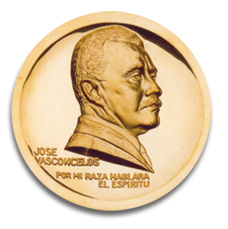 The José Vasconcelos World Award of Education is granted to a renowned educator, an authority in the field of teaching, or someone who has brought about visionary development in education policy. Through their work, they should have had a significantly positive influence on the quality and reach of teaching and learning in society.
The José Vasconcelos World Award of Education is granted to a renowned educator, an authority in the field of teaching, or someone who has brought about visionary development in education policy. Through their work, they should have had a significantly positive influence on the quality and reach of teaching and learning in society.
The qualifying jury is formed of several members of the Interdisciplinary Committee and a group of distinguished educators.
The World Award of Education grants a diploma, a commemorative medal, and 10 000 U$ dollars.
What is the WCC?
The World Cultural Council is a non-profit international organisation based in Mexico that grants the annual Albert Einstein World Award of Science and the biennial José Vasconcelos World Award of Education and the Leonardo da Vinci World Award of Arts to personalities who have recorded outstanding achievements in related fields.
For more than three decades the World Cultural Council has been recognising individuals that have made exceptional achievements in science, education and the arts, with the final objective of promoting tolerance, peace and fraternity, seeking to encourage the use of science, art and education to further the well-being of humanity.
The prizes are given to those whose work has had a significantly positive impact on the cultural legacy of mankind. The high level of the jury, comprised of world-renowned scholars and eminent individuals in the above fields, enhances the prestige of the awards. The WCC annually organises an Award Ceremony at which these recognitions are conferred. Each ceremony is held in a different country with a renowned university or academic institute acting as host.
This year the WCC is delighted to enhance relations with City University of Hong Kong, one of the region’s most dynamic universities. According to the latest QS rankings, the university is ranked 49th in the world and 4th among the world's top 50 universities under 50 years of age, and is ranked 8th in Asia.
This innovative university is thus an ideal environment for recognising the outstanding achievements of the WCC’s laureates and celebrating the inspiration that they bring as role models for future generations.
*Compiled by Sharon Farrell
Publish date: 2018-06-05 00:00:00.0


 Breaking language barriers: SRU promotes inclusivity with multilingual support resources
Breaking language barriers: SRU promotes inclusivity with multilingual support resources
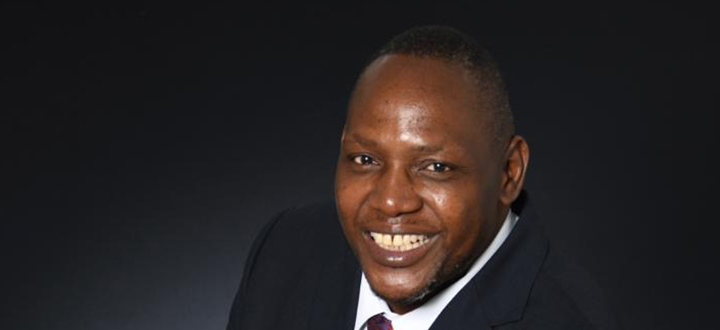 Aiming at new heights: Professor Mashau takes helm as CHS's Deputy Dean
Aiming at new heights: Professor Mashau takes helm as CHS's Deputy Dean
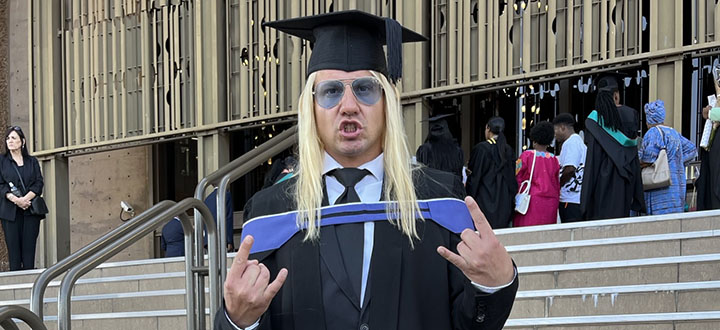 Don Cobra strikes a new chord: Musician earns a business degree
Don Cobra strikes a new chord: Musician earns a business degree
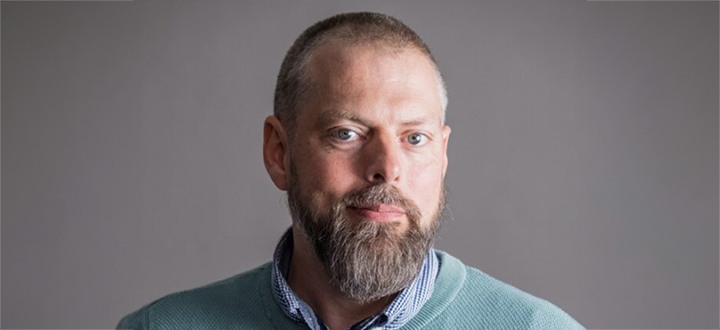 Unisan to lead Southern Africa region in "Building Equitable Futures Together" project
Unisan to lead Southern Africa region in "Building Equitable Futures Together" project
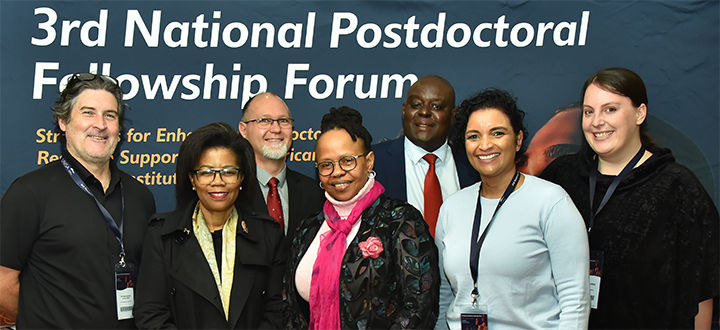 Unisa kicks off National Postdoctoral Fellowship Forum
Unisa kicks off National Postdoctoral Fellowship Forum